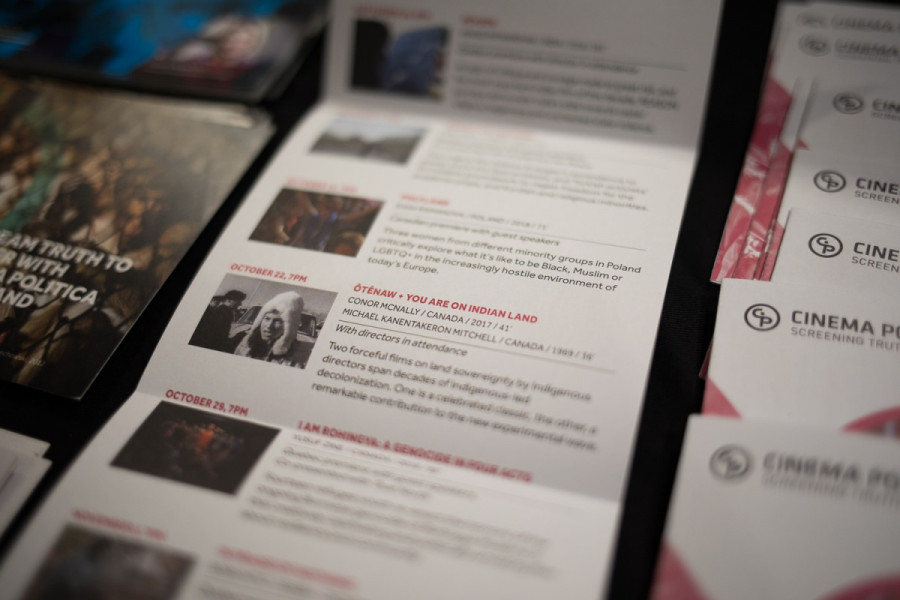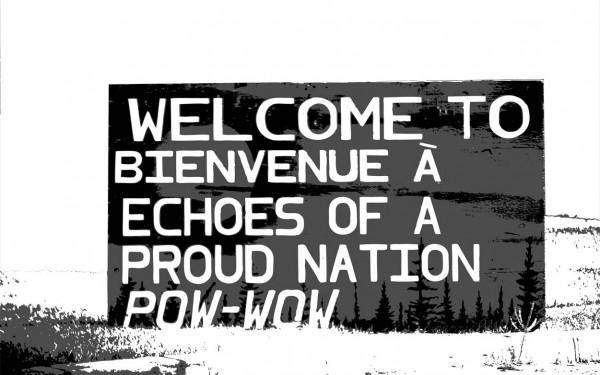Film Reviews: “Enhior’hén:ne” and “You Are on Indian Land”
Cinema Politica Screened Films of Mohawk Resilience, Strength and Sovereignty
What do we really know of this country’s history? What do we really know of this country’s origins? Do history books present us with true testimonies, or are they simply a hunter’s tale until the lion starts speaking?
One thing is for sure, Cinema Politica does not encourage one sided stories, which is made evident in their weekly projections at Concordia University.
On Oct. 22, this non-profit organization screened three films; the first was a beautiful documentary entitled Enhior’hén:ne , which translates to “Tomorrow”, the second was called Ôtênaw , a film about the histories of Indigenous peoples living in and around what is now called ‘Edmonton’, and the third was a film about the engaging 1969 protest by the Kanien’kéhaka (Mohawk) of Akwesasne, You Are on Indian Land.
Enhior’hén:neEnhior’hén:ne was a refreshing, colourful and inspiring documentary which incorporated children of the Mohawk community into the film. Directed by Karonhiarokwas Roxann Whitebean, and narrated in Mohawk by Tekarontakeh, the documentary shows children of the community engaging in conversation and ultimately embracing their relationship with the land.
The film answered questions about the planet’s fate due to the environment crisis, calling our attention to the decaying planet, and highlighting the need to protect her, like one should their own mother. Enhior’hén:ne also mentioned countries that have historically been war-zones, and delved into the topic of never-ending human conflicts, all from the children’s’ perspectives. It truly showed the audience how a child, an individual we consider too young to understand the world around them, can voice a coherent, intelligent and valid opinion.
“It’s really important to listen to the children,” said Whitebean. “And I really wanted to get into the children’s minds, and the way they envision their future and how we are affecting them today; nothing was staged or planned. All the children shared organically what was on their minds.”
You Are on Indian Land
According to the National Film Board, You Are on Indian Land by Michael Kanentakeron Mitchell documents the 1969 protest led by Kanien’kéhaka residing in Akwesasne; a territory located along the Canada-U.S. border. The protest began when Canadian authorities blocked the “duty-free cross-border passage of personal purchases”—a right created in the late 1700s by the Jay Treaty.
During You Are on Indian Land , Kanien’kéhaka protesters blocked the international bridge between Ontario and New York State. The film inspires strength, resilience, and above-all, refusal to remain passive in the face of adversity. The Mohawk people’s ability to remain peaceful while fighting for their rights is something that is highlighted in the 1969 documentary.
Panel Discussion
Three of the protesters featured in the films You Are on Indian Land were present at Cinema Politica the day of the screening. Kahentinetha Horn, one of the strongest, most admirable women, alongside her brother Frank Horn, an outspoken and respectable lawyer, and awe-inspiring Tekarontakeh engaged in a Q&A with the audience following the screening.
“Movies like these are to make you understand that you are coming here to our land,” Frank said, “and when you recognize that, you’re gonna feel different. Even in yourself, it’s very important to understand that we want you to know, that we’re not against you.”
Frank Horn continued by encouraging each person to look into themselves for the governance they need, in order to never let anyone walk all over them.
“We’re coming to a world now where the powers are coming down on each and everyone of you,” he said, “and those movies today are here to show you that we don’t have to be oppressed. Each and everyone of us has a sovereignty, and no one can take that away from you.”
Questions concerning Indigenous representation followed afterwards. Tekarontakeh took the lead with his own thoughts about Mohawk representation in the media, and in every-day life. He said that he believes his people are portrayed as terrorists and violent, which was touched upon in the film, in order to defend colonizing logic.
“Everybody talks about how we went into this land, and fought with all our might,” he said. “But nobody talks about how we built schools, we built tents, we built all kinds of things for our children. We’re fathers, we’re grandfathers, we’re brothers, we’re uncles. Just like you. But everybody wants to picture us with an AK-47 and a camouflage on.”
“They tell me I’m a criminal because I defend my people. But they got no problem to send out soldiers to other countries to kill other people. That’s ‘patriotism’ and that’s ‘being a hero.’”
Kahentinetha further stated that it is important to screen documentaries such as You are on Indian Land to raise awareness concerning Indigenous Peoples and their histories, and to reaffirm their sovereignty.
“These commemorations that we do, it is to remind ourselves and the people around us that we are who we are,” she said. “We are the people of the land, […] we are in charge of ourselves until we die.”
_For more information about Cinema Politica and their next screenings, check out https://www.cinemapolitica.org/concordia


_600_832_s.png)


__600_375_90_s_c1.jpg)
__600_375_90_s_c1.jpg)
